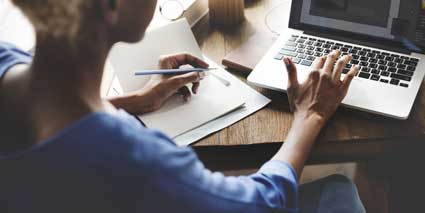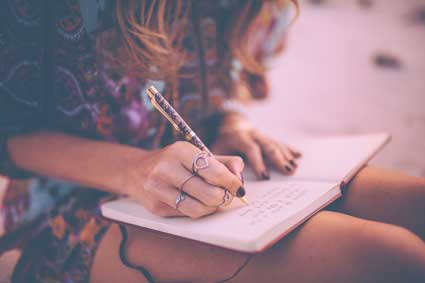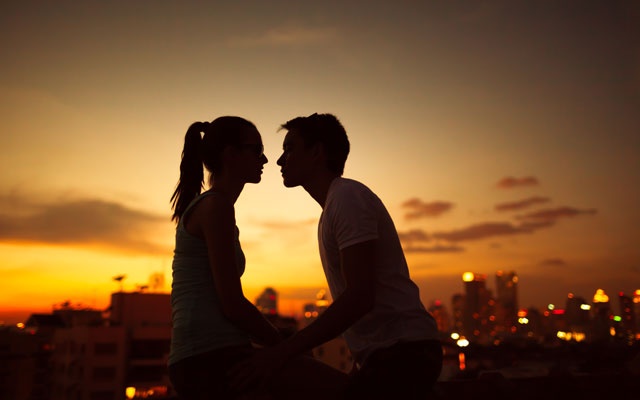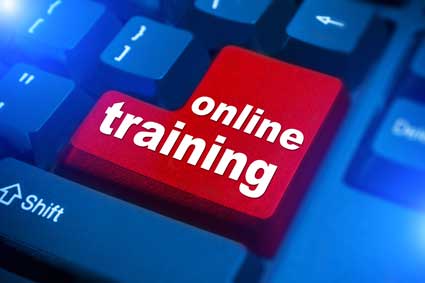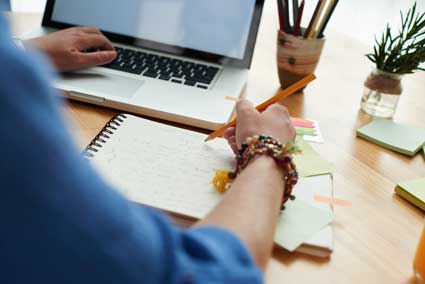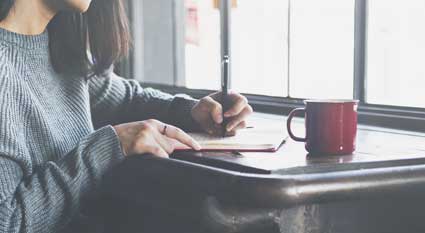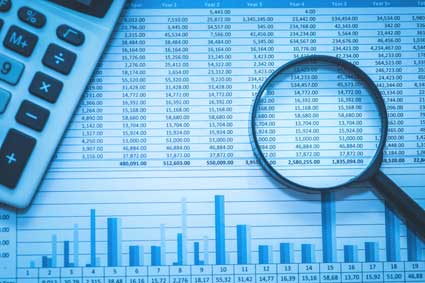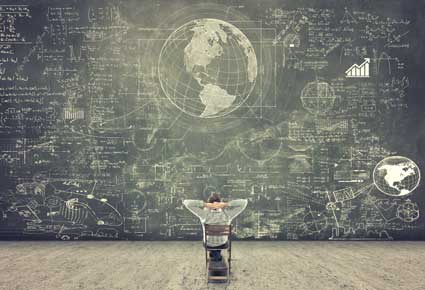The journalist must be an avid and discerning reader and a practicing writer. But those are not the only skills necessary to become a competent, if not exceptional, journalist. For those who wish to enter the profession, the art of active observation and keen listening are also essential. Let us consider each of these separately.
Observation
Being an avid observer is absolutely essential to becoming an excellent journalist. If that sounds too cliché for you, then let us investigate the expectations that accompany observation skills to better understand its value in the journalist's wheelhouse.
Observation is an action. It involves watching something, or someone, to gain information. Observation is not just about seeing and looking. If you are observing someone or something as part of the process of gathering information for a story there are a few things you should know. First, when people know they are being watched they automatically behave differently! It is just human nature. Think about it from your own perspective; isn't it true that when someone is watching you, you become more self-conscious and perhaps even exaggerate your behavior? In light of this, if you are undertaking an investigative piece, it is probably better that the object of your observation is not made aware, so you can get a more authentic read on the situation.
Observations without recording them are fairly worthless to the journalist. Part of the observation process is recording. And observations do not include just the sense of sight. The best observations call upon all of your senses – sight, sound, smell, touch, and taste wherever possible or appropriate. The benefit of observation to journalists is that it allows them to see events and persons in their natural context, thereby giving credence and authenticity to a story. Too, there are times when a person is unwilling to speak to a reporter for any number of reasons, and observing them may uncover information that would otherwise not be available -- but is nonetheless germane to the public. The observer/journalist must work to be unobtrusive and unnoticed, so they do not influence the outcome of the observation in any way.
Observation is useful when you, as the journalist, want to get direct information, and to better understand aspects of an event or process, ongoing behavior, or unfolding situations. Observation is definitely an exceptional tool for journalists, and one they should consider when setting out to write any story. That is not to say there are not some disadvantages to observation, as well. For example, observations alone and without context may be difficult to analyze, and/or may lead to journalistic bias in the recounting of the observation. It can also lead to misinterpretation when only a small part of a larger picture is examined. Too, in many cultures, it is considered inappropriate, if not wholly illegal, to observe the goings-on of certain groups or events. In other words, along with observation come questions about the ethics of engaging in it. The reader is reminded that ethics is an issue that should be regularly revisited with the development of any new story – including the efforts used to gather the information, such as observation. That is because there is great potential for abuse and invasion of privacy.
If, in your journalistic endeavors, your intent is to observe someone or something, then the following advice might be helpful. Begin by determining who or what you intend to observe, and the various aspects this observation will encompass. For example, are you observing an individual, group, or event to collect information about their characteristics, behaviors, attitudes, or other concerns? Perhaps you want to write about the attitudes of high school females who take advanced science courses and are in a male-dominated curriculum. How could you find this out from simple observations? How could you observe them unobtrusively?
That brings us to the next question when preparing to engage in observation for journalistic purposes. Where and when will these observations occur – over what time frame and how many observations? Take the time to research what other journalists have written on the subject of observation. Then develop a set of guidelines you will use to carry it out. Maybe you will cut off the observation if it becomes apparent that the object of your study realizes they are being watched. If so, what would you do? Would you explain to the individual or group the purpose of your observation? Or would you simply slip away and hope for another opportunity. These are questions you should think about and decide in advance. You should not just undertake the act of observing without having given it much thought and advance decision-making. You may actually benefit from practicing the art of observation where the information gathering is of no consequence. For instance, you could sit in the food court of a mall and observe how many adults come with children, or how many elderly people choose one food site over another. Practice your data collection and recording, as well.
Certainly, by now, you are dispelled of the notion that observation is simple! Yet, for a journalist, it is an extremely valuable skill to perfect. There are plenty of opportunities and subjects for observation that can form the foundation of a story. Besides watching people for characteristics and attitudes, their reactions to something might be valuable or interesting, as would their interactions with others. Too, there are a wealth of physical environments that are great fodder for a story. What do you observe when you sit in a city park for several hours? What about in a courtroom? Observation allows you to soak in the flavor of a place, its physical and intangible nature.
Handy Tools for the Observer
There are different tools available to journalist observers that will allow them to record their observations quickly, and in a way that they will be able to refer to the information at the end of a session and compose notes and a summary of it. Real world observers who participate in research at a professional and/or academic level have been using them for years, and perfecting them, which is beneficial for you!
One tool you might find helpful is the recording sheet. Let us say that you wanted to track the number of times a group cheered at a pep rally when a certain word or phrase was used. You would have a check sheet already prepared, and then place a tally mark on the paper – along with any additional observations you might want thrown in. Or, perhaps you have a variety of behaviors you are watching for. Then you could make a checklist in advance of the most expected ones – and leave room for others. For example, you might sit in a theater and observe how many women, versus men, cry at different parts of a sad movie. Field notes are more extensive types of note taking. You would abbreviate your thoughts to a certain extent; however, it would be expected that these would be more complete than what a checklist or tally could offer. Too, you could use a combination of these tools, as appropriate.
Now, there are some observers that believe it is appropriate to take pictures as part of their observations; however, the legalities of such are so convoluted that it is not advisable. Rather, perhaps after the observations are complete, you might share your work and ask for permission to take a photograph. But, if you are relying on photographs as part of your observation, take a different route.
Finally, just like all of the other skills that a journalist relies on to do their job, it is valuable to practice the art of observation often. That way, you will be a better observer all the time, and you just never know when you might see something that would make a great story you would have missed, if you hadn't honed your observation skills.
Listening
Listening is an important interpersonal and professional skill. It affects all aspects of life – from our personal relationships, to our job performance. Listening improves our relationships with others, and increases our knowledge and understanding of a subject. Good listeners save time and money, and have the chance to prevent problems, which may lead to better results in the end. There is a difference between listening and hearing. Hearing only requires your ears to receive an auditory signal. But listening asks the individual to attend to a message.
Few jobs require the professional to have honed their listening ability as a prerequisite of employment success. The journalist must listen in order to obtain information and understand what is being verbalized, as well as to use listening as a tool for learning about a subject being discussed. Research shows that the average individual only hears and retains anywhere from 25% to 50% of the messages being vocalized, a fact that journalists must be keenly aware of, so they do not fall into the trap of only capturing half of the content of what is being said. Moreover, less than two percent of the public has any training in the skill of listening, and a good third of professional organizations claim that listening is an important part of what their employees need to succeed in their jobs!
Journalists are advised to practice the art of active listening, or consciously attending to the words being spoken by the individual with whom he or she is interacting. That means they must focus on both the elements of speech and expressions, and also concentrate on the intent and implications of the words, as well. It requires a high level of concentration, and an ability to shut out background noise, or information that is of no consequence. In other words, the journalist must learn to pay attention with a single-minded purpose.
There are a number of barriers that hinder positive, effective listening. For example, people that interrupt a speaker are demonstrating good listening skills. Too, if the listener is looking for signals that instigate emotional responses as a way to become distracted – that, too, is a sign of poor listening. There are a number of other barriers as well. Perhaps the speaker's delivery is uninviting – or boring. Or maybe the listener is caught up in their own thought processes. We have all been there - where we look like we are paying attention but our mind is a million miles away. Perhaps the topic is uninteresting to the listener, but they are forced to sit through the talk anyway (think: staff meetings). There could also be language and cultural barriers that diminish the listening process and what each person takes away from an experience.
Here are some rules for being a good listener as a journalist.
First, do NOT interrupt when an individual is talking. Allow the person to complete his or her thoughts and then paraphrase what they have said to ensure you understood them. You may also ask questions at this time. But concentrate on what the person is saying while they are speaking and jot down notes along the way. Also, nod or smile at the individual, so they know you are listening. Listening may be the single most important way to acknowledge the importance of that person to another.
A good journalist listener will have honed their attention skills, and not find fault with the speaker – to do so invites bias into the listening process, and that is definitely something that journalists want to avoid. A good journalist also listens for the emotions that paint the words of the speaker. If a doctor is talking about AIDS statistics for their hospital, it is not only the data that he offers that is of value, but how he explains it – with empathy? With resignation? Matter-of-factly or with a resolve to change things? Of course, you will want to qualify what you believe are the emotions behind the words by asking the doctor to speak to them himself. Do not project your opinions onto others. The good journalist does not distract the speaker. Slurping your coffee, taking a phone call, squeaking your chair or tapping your pencil may be your way of releasing the tension of your job – but if it distracts the person who is speaking, then you are working at cross-purposes with yourself.
Now to recap, all of the following will make the journalist an outstanding listener, and more apt to be invited for interviews by some of the choosiest people around. Smile and nod at your speaker and genuinely focus on what they are saying. Listen to body cues, not just words. A good listener can tell when a person is uncomfortable, unhappy, or in the grips of other emotions. A good journalistic listener will repeat the occasional phrase to reassure the speaker you are attending to their words, and empathize mildly, or clarify, when either task is required. The good journalist will develop the ability to probe into what a speaker is saying to get to some underlying information that has remained unsaid to that point. The good listener understands how to listen instructively – interjecting comments to validate the speaker's remarks; and the good listener understands the value of silence and pregnant pauses – and how to use both to their advantage without abusing the situation.
Who knew – observing and listening are not passive skills at all – but the very essence of reporting.


